
AS MY READING, study, practice and experience of horticultural therapy, gardening and permaculture expand through the years, I'm finding horticulturists and garden designers with diverse backgrounds who develop very similar ideas about best gardening practices. Great minds really do seem to think alike.
I've been spending time (figuratively) with three particular horticultural thinkers whose ideas would definitely overlap in a Venn diagram of vital gardening theories and practices: Akira Miyawaki, Mary Reynolds and Doug Tallamy.
Born in 1928, Japanese botanist Akira Miyawaki developed a forest restoration method aptly called the Miyawaki Method, which involves planting miniature forests in land areas of any size.
An Irish garden designer and 2002 gold-medal winner at the Chelsea Flower Show, Mary Reynolds promotes forest gardening, which combines intentional woodland design with growing edible plants.
Author, wildlife ecologist and University of Delaware entomologist Doug Tallamy encourages gardeners to grow native species, especially native trees, that contribute robustly to local food webs.
There are many areas of intersection between these three thinkers (and points of difference as well), but this column will focus on their thoughts on bare soil, native plants and trees.
BARE SOIL
None of these garden experts like bare soil; all point out that, in the natural world, you only see plantfree zones where the soil is not healthy. Bare soil tends to dry out and crack under a hot sun, to wash away in heavy rains and to blow off in strong winds.
"In nature, land does not want to remain barren," Miyawaki wrote in his 2006 book, The Healing Power of Forests. Nature always seeks to cover soil with plants, which not only prevent erosion but offer food and habitat to organisms large and micro.
Esta historia es de la edición September - October 2024 de Horticulture.
Comience su prueba gratuita de Magzter GOLD de 7 días para acceder a miles de historias premium seleccionadas y a más de 9,000 revistas y periódicos.
Ya eres suscriptor ? Conectar
Esta historia es de la edición September - October 2024 de Horticulture.
Comience su prueba gratuita de Magzter GOLD de 7 días para acceder a miles de historias premium seleccionadas y a más de 9,000 revistas y periódicos.
Ya eres suscriptor? Conectar

Pot It Up
Shake up the containergarden with theseNorth America –native perennials
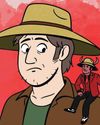
THE GARDEN PATH TO PERDITION
I WAS CRUISING RIGHT ALONG, feeling okay about myself, when I came across a list of the Seven Deadly Sins.
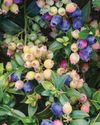
A Productive PATIO
Tiny fruit, vegetable and herb plants help gardeners maximize any sort of growing space
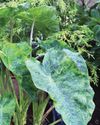
TROPICAL FUSION
A FUSS-FREE APPROACH TO USING BOLD TROPICAL PLANTS IN ANY TEMPERATE GARDEN

WINTER READING
Pass the time with any of these inspiring books
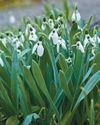
SENSING A PATTERN
Greg Coppa reflects on an odd weather year and what continued warming may mean for his Rhode Island garden
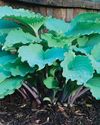
TOP-PRIZE PERENNIALS
A foliage masterpiece for shade and a late bloomer for sun

MARK WESSEL
What's new for fruit and vegetable gardeners?
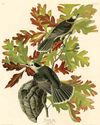
KINGS OF THE NORTHERN FORESTS
A look at the trees, shrubs and perennial plants that bolster life in Ecoregion 5

PROJECT FEEDERWATCH
Gardeners can help scientists know just where the birds are in winter